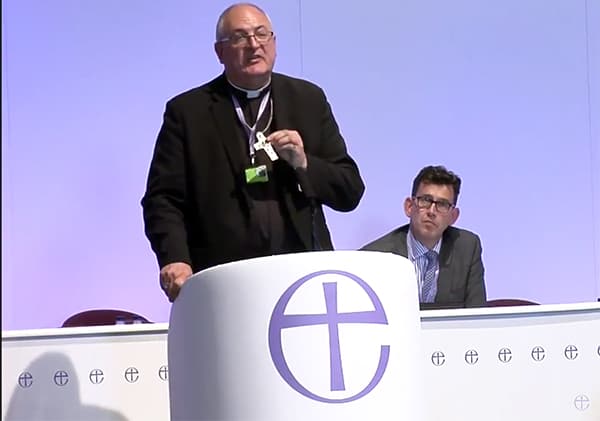
A Church of England synod in London this week prevented approval of a report promulgated by its bishops that sought to limit marriage as between “one man and one woman.”
The report had previously been issued late last month and came before the entire body as it decided whether to “take note of” it. While it gained an overall majority of votes, it further required a majority in each of the church's three houses, comprised of bishops, clergy and laity, and the clergy voted against it, 100 to 93. It was a stunning development:
The issue has dominated the current four-day session of the synod, and has been the subject of bitter debate within the C of E—and the global Anglican communion—for decades. At the moment, gay clergy are forbidden from marrying or having sexual relationships, and same-sex marriage services are prohibited in churches.
In a debate lasting more than two hours, about one in three members of the synod requested to speak from the packed floor of the auditorium. Many contributions included personal testimonies from gay people.
Archbishop of Canterbury and leader of the church Justin Welby had urged acceptance of the report as a “good basis, a roadmap,” but was met with solid resistance from its more pluralistic-minded members and LGBT parishioners, who have prevailed for now. Bishop of Norwich Graham James, who had announced the report's publication, acknowledged the defeat in saying that he and his fellow bishops “have listened to those who have spoken” and signaled that their “ongoing discussions would be informed by” the rejection.
Jayne Ozanne of Oxford, who had vigorously campaigned on behalf of gay members and spoke in opposition, welcomed the outcome:
“I am thrilled that this report has been voted down. We now look forward to working together to build a church that is broad enough to accept the diversity of views that exist within it, courageous enough to address the deep divisions that exist between us and loving enough to accept each other as equal members.”



